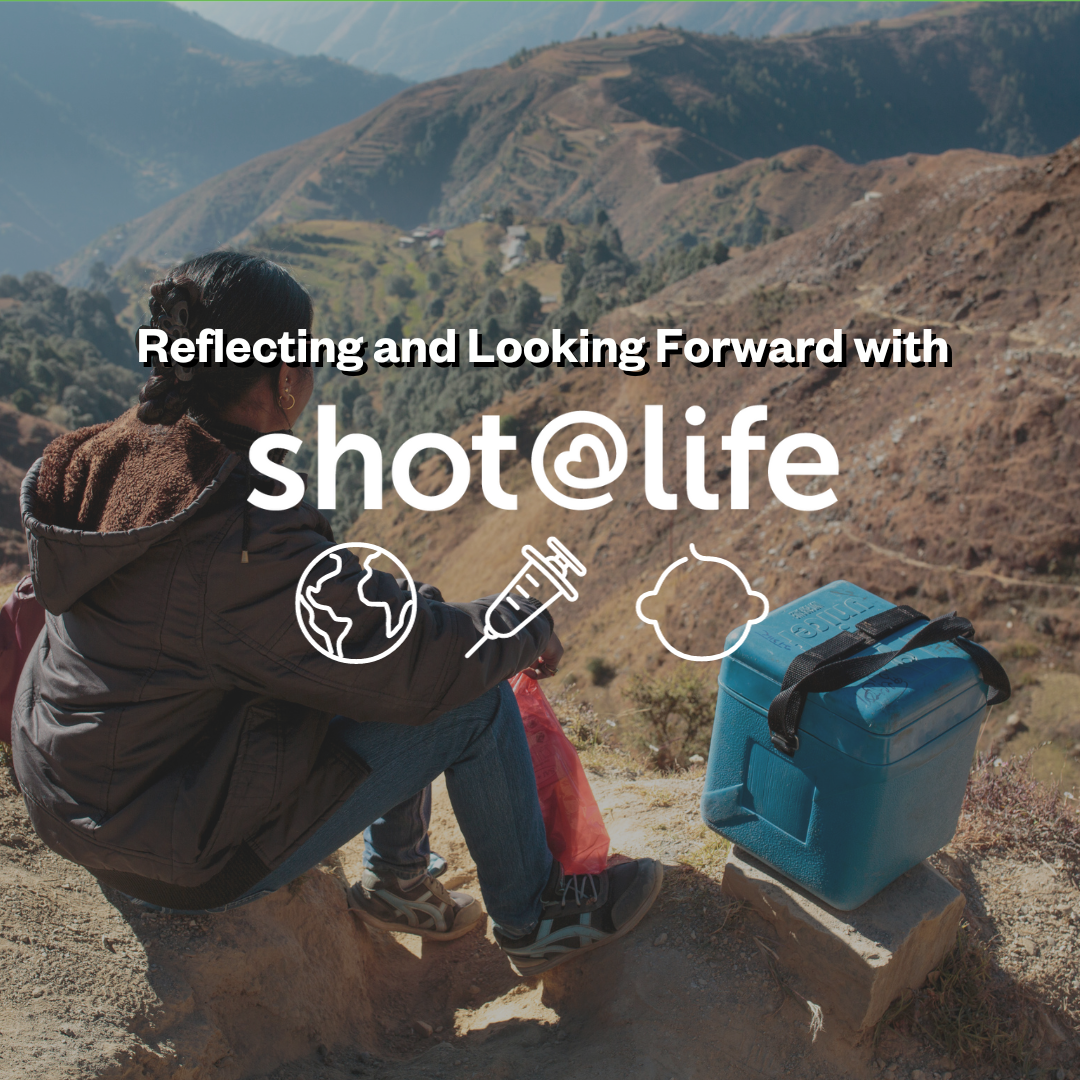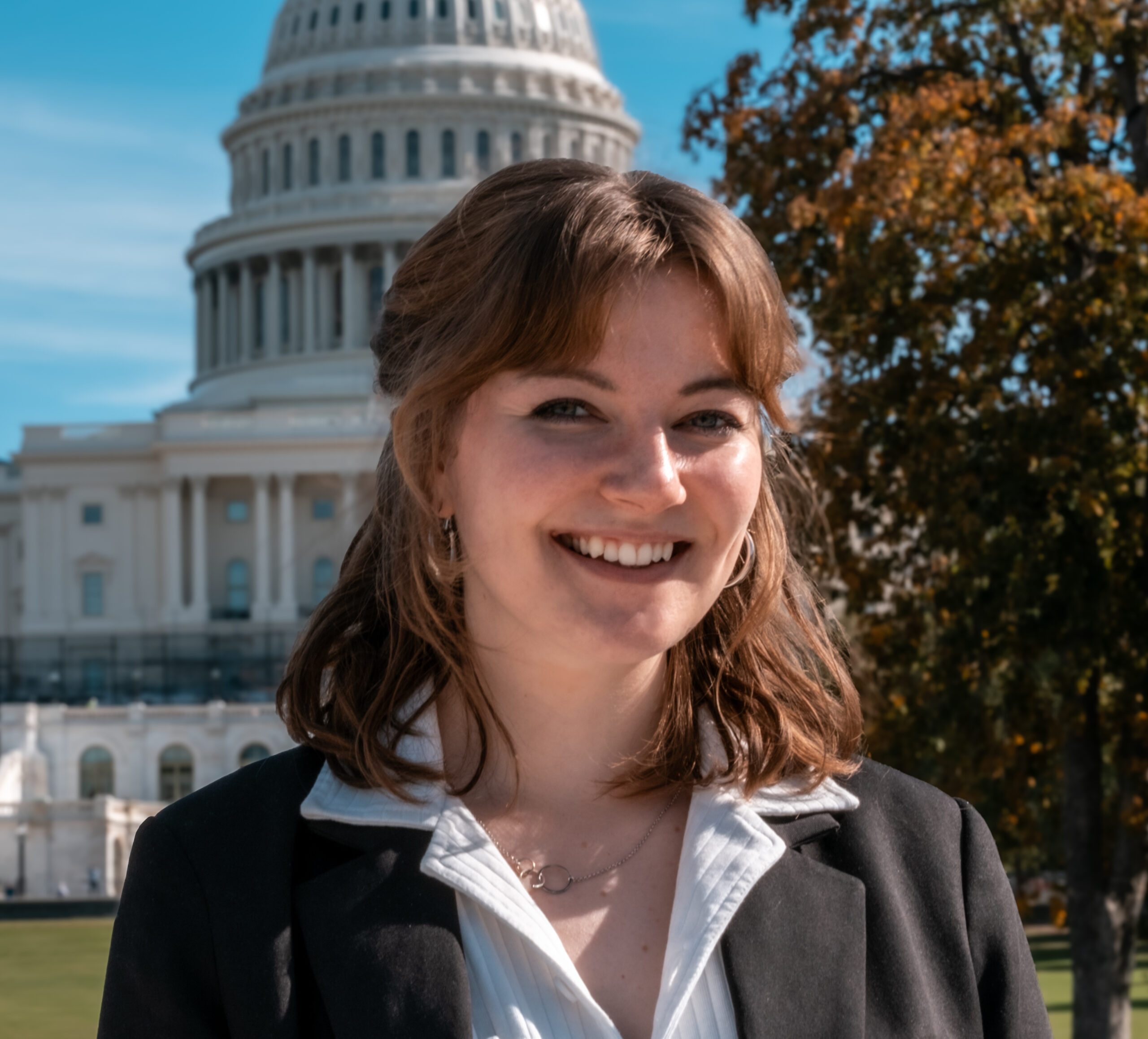Looking Ahead: Immunization in 2024
2023 was a transformative year for global immunization, and paved the way for more progress in 2024. From novel vaccines being developed and distributed, to nationwide vaccine campaigns already underway, to pledges for routine immunization programs, we enter 2024 with ongoing determination to give everyone a shot at life.

Click here to read Shot@Life’s 2023 Impact Report.
INTRODUCTION
2023 was a year of ups and downs, but was undeniably transformative for the global “vaccine renaissance” currently underway. Entering the new year, the global health community is working to continue gaining momentum in the fight for global immunization. From nationwide vaccination campaigns, to pledges for routine immunization, to new vaccines being distributed where they’re needed most, the transition from 2023 to 2024 reveals a beacon of hope for giving everyone a shot at life. Read on to reflect on last year and preview the year to come for each of our key vaccine-preventable diseases.
MALARIA
2023 unveiled a new era of vaccination against one of the world’s deadliest diseases. Two new vaccines are now pre-qualified by the WHO to combat malaria: R21/Matrix-M and RTS,S/AS01. Going into 2024, these malaria vaccines have the potential to save hundreds of thousands of lives. In November of last year, 330,000 doses of the RTS,S malaria vaccine arrived in Cameroon—the first country to receive the vaccine that was not involved in the pilot program. Entering the new year brings a new sense of excitement as 12 African countries are set to receive 18 million doses of the RTS,S vaccine. The pre-qualification of both vaccines now means larger access to these tools of prevention where they’re needed most on the African continent, helping to reduce the 600,000 lives taken by malaria each year. There is still work to be done in lowering the burden of malaria, especially following climate and humanitarian disasters, such as last year’s floods in Pakistan that resulted in a five-fold increase in the country’s malaria cases, but R21 and RTS,S bring a renewed optimism for 2024.
MEASLES
Last year’s World Measles Report detailed that amidst the general recovering vaccination rates after COVID-19, there was a rise in measles cases; the initial 7.8 million cases and 95,000 deaths in 2021 rose to roughly 9 million cases and 136,000 deaths in 2022. Now, in the face of this surge in cases and deaths, the recently implemented Measles and Rubella Strategic Framework 2021-2030 will guide strategy and promote increased access to healthcare and vaccination services entering the new year. According to Aurelia Nguyen, the Chief Program Officer at Gavi, the Vaccine Alliance, “The concerning surge in measles outbreaks and mortality is a stark reminder of the importance of sustained attention on recovering from the pandemic and ensuring health systems are equipped to reach even the hardest to reach communities. Gavi, the Vaccine Alliance, has played a foundational role in supporting lower-income countries’ measles vaccination efforts since 2000 and we will double down on this commitment in 2024.” Gavi plans to reinforce support for routine measles and rubella programs, support outbreak response, and focus heavily on reaching high coverage rates through zero-dose children and missed communities as we enter the new year.

PNEUMONIA
Even in 2024, pneumonia remains a leading cause of death worldwide and disproportionately affects refugees and displaced people. Despite being easily preventable with vaccines, over 50% of children around the world are not protected. As of July 2023, 155 countries use PCV in their routine immunization programs, while 36 countries have yet to introduce it. A 2019 study estimated that nearly 400,000 annual child deaths from pneumonia can be averted through vaccination, and a number of significant commitments at the 2nd Global Forum on Childhood Pneumonia last April point to progress in the new year. Four more countries—Chad, Guinea, Somalia, and South Sudan—will be introducing pneumococcal conjugate vaccines (PCV) into their routine immunization schedules, as stated at the 2nd Global Forum on Childhood Pneumonia last April, while Burkina Faso, the Democratic Republic of Congo, Ethiopia, Mozambique, and Nigeria have pledged to increase vaccine coverage continues to reinforce the optimism underscoring vaccine progress in 2024.
POLIO
We have been 99.9% of the way towards eradicating polio for some time, and entering 2024 it remains endemic in only two countries: Pakistan and Afghanistan. Last year, health workers vaccinated more than 400 million children against this deadly disease, preventing an estimated 650,000 cases of paralysis from polio and saving the lives of up to 600,000 children. In both countries, efforts are focused on reaching and vaccinating any remaining children as we enter the new year.
In the first week of 2024, there has already been an exciting development in polio vaccinations. The first nationwide polio vaccination campaign in 2024 began on Monday in Pakistan. Through this campaign alone, over 44.3 million children under the age of five will receive polio drops. On a larger scale, the Global Polio Eradication Initiative continues its strategic approaches to a polio-free world in the new year, claiming that “2023 has firmly set the stage for success.”

HUMAN PAPILLOMAVIRUS
Globally, only one in eight girls is vaccinated against human papillomavirus (HPV,) the leading cause of cervical cancer. Immunization rates had been steadily rising before the COVID-19 pandemic significantly disrupted momentum, but 2023 was a big year for increasing HPV vaccination coverage once again. In 2023, UNICEF supplied 52 countries with HPV vaccines—in total almost 36 million doses—and for seven of them, it was the first time the vaccine had been introduced. This distribution process will continue into 2024 to keep increasing the number of girls protected against HPV. Another key milestone was reached last year when Nigeria added the HPV vaccine to its routine immunization program, reaching nearly 7.7 million girls in the largest single round of HPV vaccination in Africa. This is a massive step towards protecting the women of Nigeria, and the potential impact is clear; vaccinations for HPV can save more than 16 million Nigerian girls from cervical cancer by 2025.
ROTAVIRUS
Entering the new year, rotavirus remains one of the deadliest diseases worldwide; 484,000 children under the age of 5 died of diarrhea in 2023, and the Global Action Plan for the Prevention and Control of Pneumonia and Diarrhea (GAPPD) Diarrhea scores continue to lag behind the target of 82% vaccine coverage in all focus countries. Despite this, many countries report substantial increases in rotavirus vaccine coverage after successful introduction efforts in 2023. Moreover, the global “Human Rotavirus Vaccine Market” report indicates a continued expansion in the coming years due to an increased demand for sustainable and innovative products, and recent research from Johns Hopkins Bloomberg School of Public Health estimated that the introduction and scale-up of PCV and rotavirus vaccines in four target countries—Chad, Guinea, Somalia, and South Sudan—could save over 80,000 lives of children under five in the coming years. These estimates serve as a call to action and light a newfound fire in the fight for global immunization.
Overall, 2023 was a transformative year for vaccine equity, and it laid the foundation for what’s to come in 2024. To make your voice heard in achieving vaccines for all, click here to contact Congress today.

